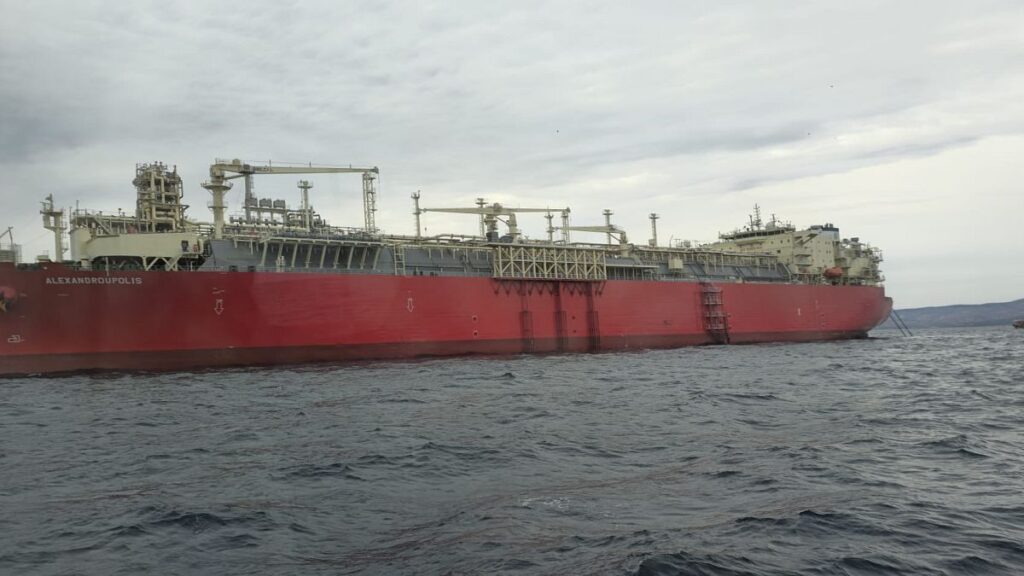The new infrastructure will allow more liquefied natural gas to be transferred to southeastern Europe.
A new natural gas system has been commissioned in the Greek city of Alexandroupolis. It is a floating storage and regasification unit (FRSU) that converts liquefied natural gas back into usable gas for consumption.
The project aims to reduce South-Eastern Europe’s dependence on Russian gas, by providing access to this cheaper and more environmentally friendly form of energy.
It includes a system of underwater and land gas pipelines through which natural gas is imported into Greece and transported to consumers in Greece, Bulgaria, Romania, North Macedonia, Serbia, Moldova and Ukraine to the east, and to Hungary and Slovakia to the west.
The project should also make it possible to generate 382 million euros in savings by contributing to the replacement of coal and oil with gas in the Balkans.
“If we look as far as Hungary, Ukraine and Moldova, the current long-term supply of natural gas from Russia to this region, including Greece, is about 20 billion cubic meters”explains Maria Rita Galli, CEO of DESFA – the operator of the Greek natural gas transport system.
“Greece, with the existing infrastructure and now that of Alexandroupolis, plus the investments made in the network, will have an export capacity of around 8.5 billion cubic meters by the beginning of next year “she adds.
Maria Rita Galli adds that although there are already LNG terminals in Croatia, Turkey and Germany, the new Greek system will be an important gateway to reach other parts of Southeast Europe.
The Balkans remain one of the regions still heavily dependent on Russian gas.
The construction of new infrastructure allowing the import of liquefied natural gas from other countries could thus prove crucial, as Europe seeks to develop its energy independence from Moscow.




